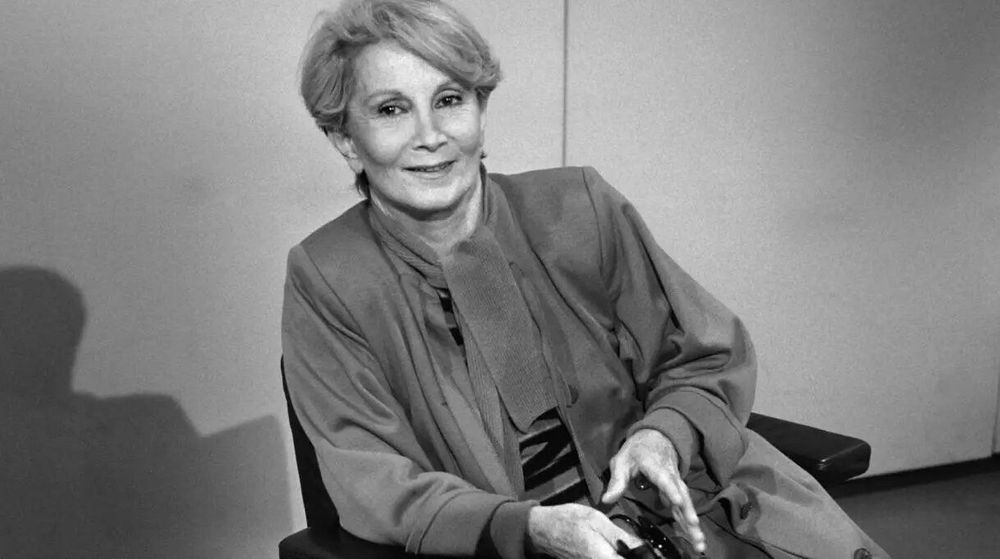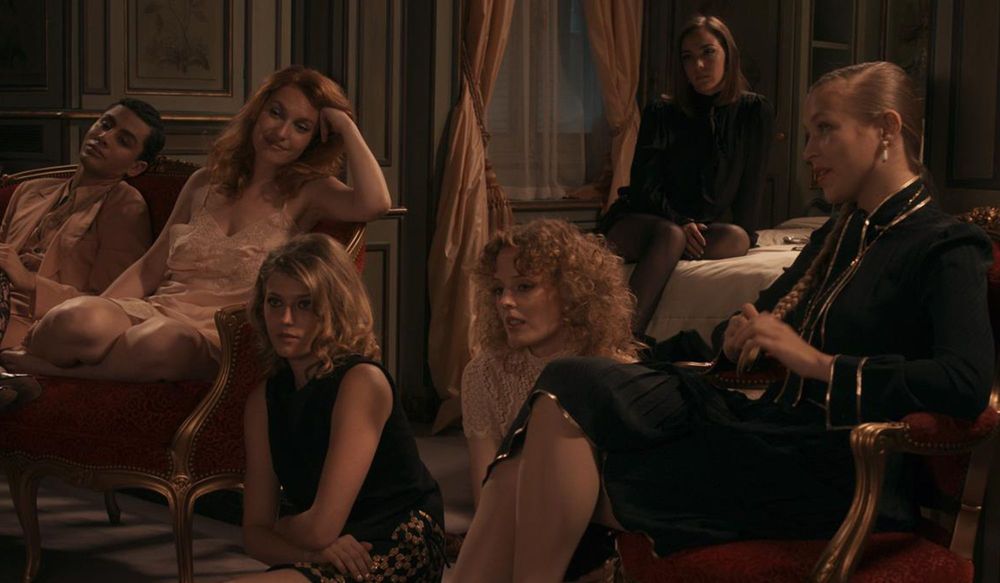Madame Claude is a new biopic based on sex work in 1960s Paris, run by mythical pimp Madame Claude. Born Fernande Grudet, Madame Claude revolutionized sex work in Paris, making it a preserve of the rich and powerful and attracting names such as Charles de Gaulle, Shah of Iran, and JFK.
Claude made sex work luxurious, at least for her high-profile clients. The girls, despite extensive refinement and grooming, were seen as nothing more than sex machines. Madame Claude charged 30% commission per client plus costs incurred in making the girls appear accustomed to French high society.
Madame Claude is based on the true story of Madame Claude. However, it also contains a few disputed facts.
The truth about Madame Claude’s early life remains a mystery

Madame Claude is based on the imagined true story of Madame Claude. ‘Imagined’ because a large part of Madame Claude remains a myth, partly created by the woman. “Some even doubt I exist,” she says in the film.
Claude gave some insight into her early life via her 1994 memoir. She says that she was born in 1923 into a working-class family, and later spent time in a Nazi concentration camp for working with the French Resistance. However, a 2010 French documentary cast doubt on Claude’s assertions, instead claiming that she didn’t resist the Nazis nor did she suffer under their rule.
Madame Claude’s early life came up again in 2014 after Vanity Fair quoted an owner of a popular Los Angeles restaurant who claimed that he’d seen a concentration camp number tattooed on her wrist. One of Madame Claude’s former clients corroborated the restaurateur’s assertions but opined that she wasn’t imprisoned for being part of the Resistance, but for being Jewish.
What is clear is that Madame Claude surfaced in Paris several years later and started on her way up the social ladder. How she did it? Nobody really knows. However, she reportedly said: “There are two things that people will always pay for, food and sex… I wasn’t any good at cooking.”
The film repeats Madame Claude’s 1970s claim that she worked as a prostitute. However, Madame Claude later denied that she worked as a sex worker. Madame Claude had a daughter, whom she sent to Loire to be raised by Claude’s mom. Madame Claude suggests that Claude moved her mom and daughter to Paris after her business picked up, but in real life, Claude never established a relationship with her daughter.
The films assertions about Madame Claude’s rigorous vetting of ‘Claude’s girls’ is true

At the height of her success, Madame Claude reportedly had 200 girls working in Paris. It’s unclear where she got the girls – some claim that they were failed actresses and models, while others allege that Claude picked impoverished girls from the streets. However, it remains uncontested that Madame Claude rigorously interviewed and inspected the girls before offering them jobs.
Image was perhaps Claude’s biggest concern. It is reported that she got plastic surgery to alter her image as she steadily elevated her social status. The girls had to blend into events without arousing suspicion that they were there to offer sex.
Madame Claude inspected their minds, asking them questions about aristocracy and geography, and their bodies, in search of any permanent blemishes that couldn’t be fixed. In Madame Claude, the sophisticated pimp asks the girls to demonstrate how they clean their private parts. The next stage of the girls’ evaluation involved a dry run with Madame Claude’s closest and most trusted male friends.
A positive report from the male friend would take the girl to the next stage, aptly titled self-improvement. This stage involved an expensive wardrobe makeover, lessons in English and history, and at times, a change of address. The girls were expected to pay back all the money Madame spent in improving them.
Claude charged anywhere from $300 to $1,000, depending on how much time the client wanted to spend with the girl. The high rates attracted wealthy and powerful clients, further cementing Madame Claude’s international status. The film notes that Madame Claude’s business became something like a State-run operation; such was her influence in political circles.
It is reported that Claude’s girls provided a morale boost for CIA operatives during the Paris Peace Accords. A change in government in 1974 signaled the start of the downfall of Madame Claude. She claimed that the government led by Valery Giscard cracked down on her operation and pressured her to pay taxes, things that the previous government didn’t do.
One of Madame Claude’s rejects contributed to the downfall of the business
Madame Claude left for Los Angeles in 1977, where she established a successful operation. However, she never felt happy in the United States, and in 1985 she returned to France. In 1986, she spent four months in ‘prison’ for tax evasion.
Six years later, she was arrested for taking a commission from the proceeds of prostitution. Despite being found guilty, she didn’t serve time. The tip-off came from a girl who Madame rejected for being too fat.
Claude moved close to her daughter in Nice in the late 1990s but never established close relations with her. The legendary pimp passed away on 15th December 2015 in a nursing home.
Like any biopic, Madame Claude features several inconsistencies. However, it offers as accurate a description of Madame Claude’s mythical life and business as you will find anywhere else.